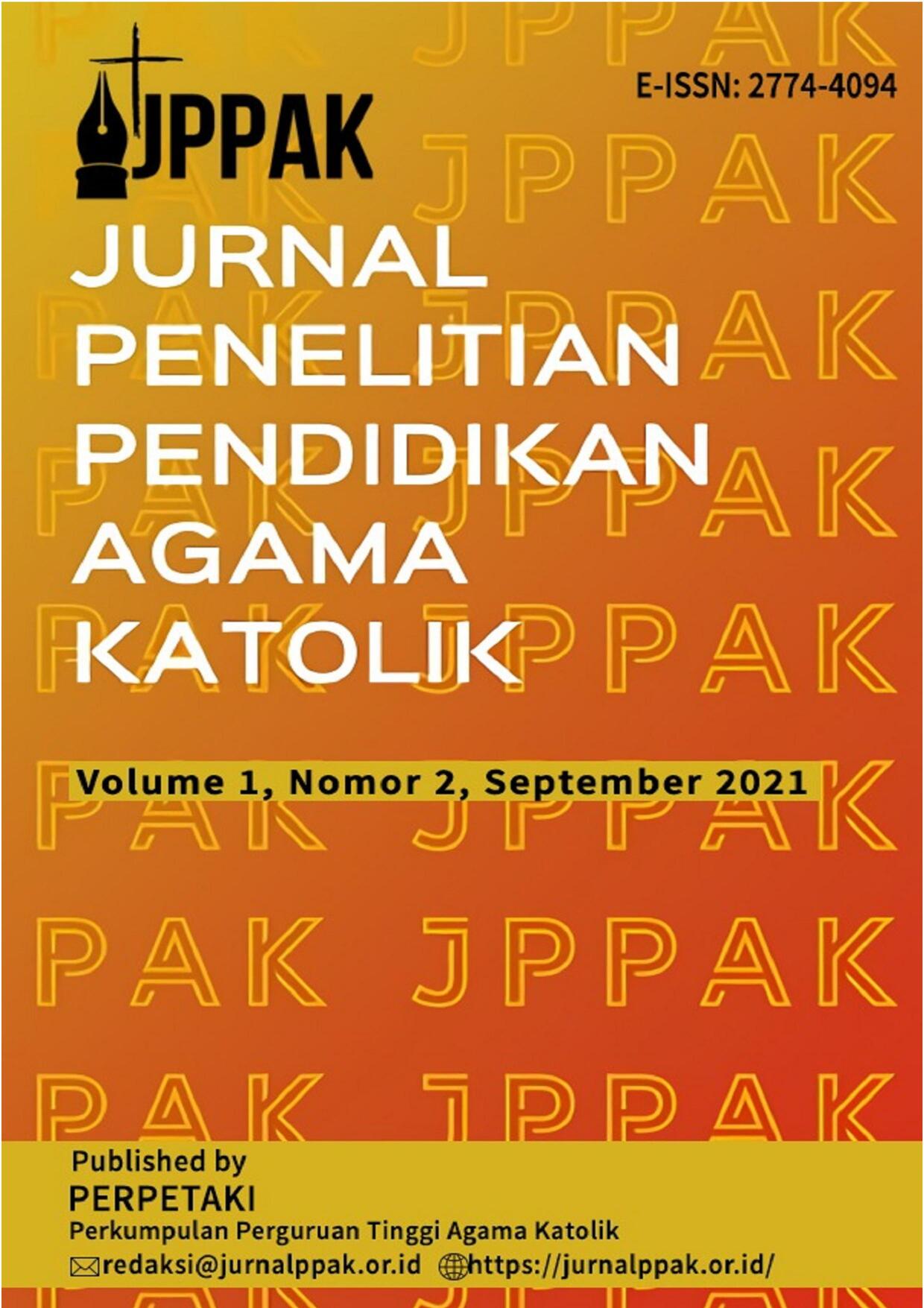Pastoral of "Kotew" for the Parishioners of St. Petrus Kanisius Kandui, Palangka Raya (A Theological Treatise Based on the Contextual Theology of Stephen B. Bevans
DOI:
https://doi.org/10.52110/jppak.v1i2.13Keywords:
Catechesis, “Kotew”, Suku TewoyanAbstract
The purpose of this research is to explore the fundamental aspects of catechesis among the people. It turns out that homily or preaching can be absorbed inadvertently if the pastoral team promotes "Kotew" spirituality. “Kotew” in the Manyaan and Tewoyan Tribes, Kandui, Central Kalimantan is defined as “stopping by” or “hanging out”. Bevans, a contextual theologian looking at one's understanding of God's Revelation, one's attitude to human experience, one's understanding of the normativity of Scripture or tradition, one can choose to enter into a critical dialogue between the past and the present in his opinion. This study finds out that "Kotew" needs to be promoted among the pastoral workers of St. Peter Canisius parish in Kandui. When sermons, meditations, lectures deep in meaning just stop at the altar, people of Kandui feel the “warmth of brotherhood” brought by “Kotew”. The main context of the research is the parishioners of St. Peter Canisius, Kandui. Mission development, both in terms of quantity and quality, continues at St. Peter Canisius, Kandui. This parish just became an independent parish in 2013. The SMM congregation was entrusted by the Bishop of Palangka Raya to open the mission there. This parish was already prepared to become a parish in 1999. However, administratively and independently, Kandui only became a parish in 2013. The methodology used by the author in this paper is a qualitative method, namely phenomenology. These research’s sources are the lives of faith of the believers.
Downloads
##submission.downloads##
Submitted
Accepted
Published
How to Cite
Issue
Section
License
Copyright (c) 2021 Jurnal Penelitian Pendidikan Agama Katolik

This work is licensed under a Creative Commons Attribution 4.0 International License.
Copyright Notice and Permissions
Jurnal Penelitian Pendidikan Agama Katolik offers immediate open access to all its content on the principle to make researches freely available to the public, especially to the scholars, to support greater global exchanges of knowledge. This journal encourages all scholarly authors to allow their research openly available, free access and without time restrictions.
All articles published Open Access will be immediately and permanently free for everyone to read and download. Under the CC BY-SA 4.0 license, authors retain ownership of the copyright for their article, however authors grant others permission to use the content of publications in Jurnal Penelitian Pendidikan Agama Katolik (JPPAK) in whole or in part provided that the original work is properly cited. Users (redistributors) of Jurnal Penelitian Pendidikan Agama Katolik (JPPAK) are required to cite the original source by including at least: the full title of the article, the author's or authors' full name(s), JPPAK as the initial source of publication, year of publication and volume number using a propriate citing method.
Copyright encompasses exclusive rights to reproduce and deliver the article in all form and media, including reprints, photographs, microfilms and any other similar reproductions, as well as translations. The reproduction of any part of this journal, its storage in databases and its transmission by any form or media, such as electronic, electrostatic and mechanical copies, photocopies, recordings, magnetic media is prohibited without consent of Jurnal Penelitian Pendidikan Agama Katolik (JPPAK).
Jurnal Penelitian Pendidikan Agama Katolik (JPPAK) is licensed under a Creative Commons Attribution Share-Alike 4.0 International. (CC BY-SA 4.0)
Authors who publish with Jurnal Penelitian Pendidikan Agama Katolik (JPPAK) agree to the following terms:
- Authors retain copyright and grant the journal right of first publication with the work simultaneously licensed under a Creative Commons Attribution Share-Alike 4.0 International (CC BY-SA 4.0) license that allows others to share the work with an acknowledgement of the work's authorship and initial publication in this journal.
- Authors are able to enter into separate, additional contractual arrangements for the non-exclusive distribution of the journal's published version of the work (e.g., post it to an institutional repository or publish it in a book), with an acknowledgement of its initial publication in this journal.
- Authors are permitted and encouraged to post their work online (e.g., in institutional repositories or on their website) after the publication on JPPAK, as long as it not published on other OJS for it will be treated as plagiarism by plagiarism checker apps. It can lead to productive exchanges, as well as earlier and greater citation of published work (See The Effect of Open Access).












